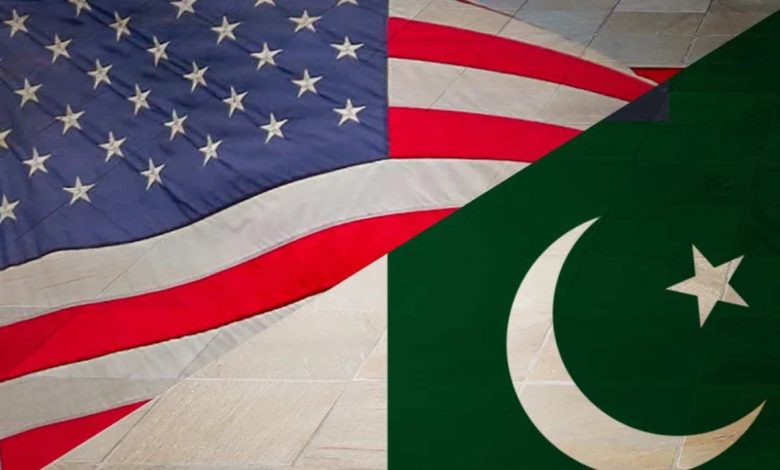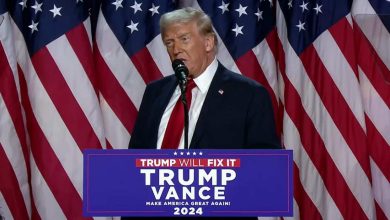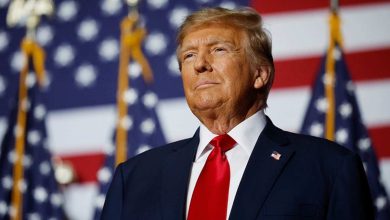
Donald Trump, in a speech at his Florida watch party, declared victory in the 2024 US presidential election, hailing it as a “magnificent victory” and promising a new era of prosperity for America. Although the official results are still pending, Trump’s remarks reflected a high level of confidence as he positioned himself for a return to the White House.
As discussions about his potential second term unfold, many in Pakistan are speculating on how a Trump presidency might impact the relationship between the two countries, particularly with regard to Imran Khan’s political future and broader diplomatic ties.
While some in Pakistan have expressed hope that Trump’s return could lead to favorable outcomes for both Pakistan Tehreek-e-Insaf (PTI) and US-Pakistan relations, such expectations may be misguided.
US foreign policy, regardless of the administration, is primarily driven by national strategic interests rather than the political aspirations of foreign leaders or diaspora lobbying efforts.
‘America First’
If Trump assumes office again, his foreign policy would likely revert to the “America First” approach that characterized his first term. This policy prioritizes US interests in a manner that can often sideline traditional alliances and diplomatic commitments.
For Pakistan, this shift could mean a reduction in foreign aid, especially for civilian projects and long-term development initiatives. Aid would likely be refocused on areas directly linked to US security objectives, such as counterterrorism and regional stability.
Islamabad might find itself subjected to conditions tied to immediate US priorities rather than broader cooperative goals.
US-China rivalry
One of the most significant challenges Pakistan would face under a second Trump term is dealing with the heightened US-China tensions. Trump’s administration had already initiated a trade war with China, and his stance toward Beijing has been one of competition rather than cooperation.
A second term could see these tensions escalate further, potentially placing Pakistan in a difficult position.
Given Pakistan’s growing relationship with China, particularly through the China-Pakistan Economic Corridor (CPEC), any move by Trump to curb China’s influence would likely impact Pakistan’s strategic options.
Washington may exert pressure on Islamabad to limit its engagement with Beijing, particularly in areas such as infrastructure and defense, where China’s influence is most pronounced.
Strengthening ties with India
Trump has shown a clear preference for closer ties with India, viewing it as a strategic counterbalance to China in the Indo-Pacific region. If Trump returns to office, this dynamic is expected to deepen, with the US likely placing greater emphasis on India as a key ally in the region. For Pakistan, this shift could be problematic.
Pakistan has long been sensitive to US-India relations, particularly with regard to issues like Kashmir and the broader security environment in South Asia. A Trump administration, with its pro-India tilt, may deprioritize Pakistan’s concerns or ignore them entirely in favor of broader regional objectives.
Scrutiny of nuclear security and counterterrorism efforts
Trump has previously expressed concerns about nuclear security in South Asia, with Pakistan often cited as a focal point in discussions about regional stability.
A return to office could result in a renewed emphasis on nuclear security, with increased scrutiny of Pakistan’s nuclear arsenal and demands for greater transparency in its nuclear activities. The US may also impose stricter conditions on aid, linking it to Pakistan’s cooperation in nuclear nonproliferation efforts.
Furthermore, Trump’s administration would likely continue its focus on counterterrorism, especially in relation to groups operating within Pakistan’s borders that have direct ties to US interests.
The US could press Pakistan to take more aggressive action against domestic militant groups, which could strain Islamabad’s internal policy and security concerns.
Future of US-Pakistan relations
In the event of a Trump presidency, US-Pakistan relations are likely to become more transactional. Unlike previous administrations that maintained broader diplomatic engagement, a second Trump term would likely see a more conditional relationship, where US support is tied to specific security objectives rather than long-term development or humanitarian goals.
It would present Pakistan with a difficult choice: to comply with US demands in exchange for security assistance or to chart an independent course that may risk further alienating Washington.
The increasing emphasis on security-related cooperation would likely reduce the scope for broader collaboration in areas such as economic development or political reform.
Additionally, Pakistan will need to adjust its foreign policy priorities to accommodate a more transactional relationship with the US. While economic and diplomatic support from Washington may decrease, Islamabad will be left with few options but to strengthen its ties with China, which could help mitigate the potential loss of US backing.
However, this shift could come with its own set of challenges as Pakistan attempts to balance its relations with two major global powers — China and the US — both of whom have competing interests in the region.



